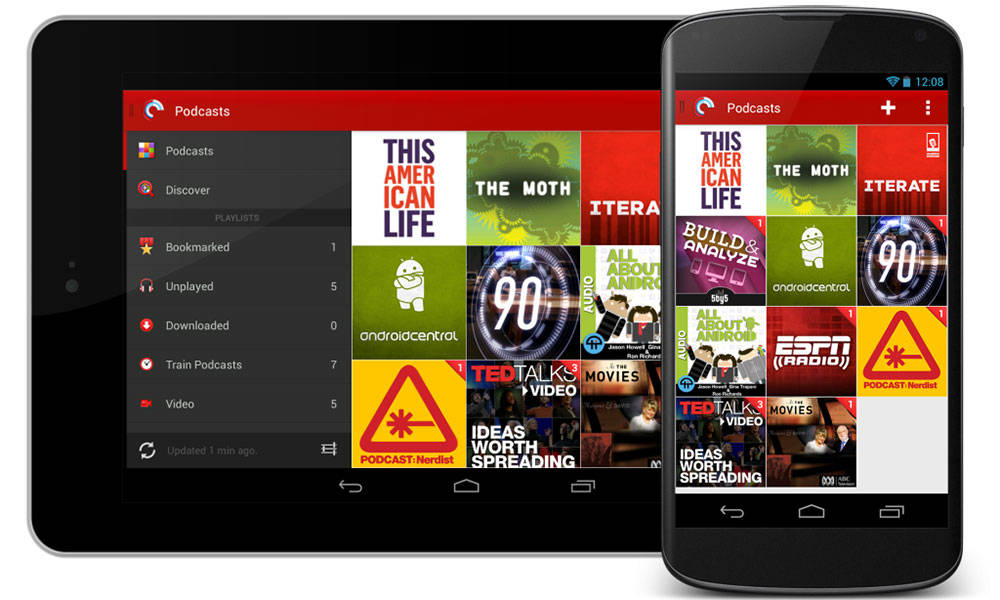
Can You Acquire Like a Tech Company?
The surprise acquisition of a podcast app by a number of major public radio companies shows that even traditional organizations are taking a tech-world approach to acquiring promising startups. Could associations pull a similar trick?
After a fallow period following a couple of years of initial buzz, podcasting has become a long-term, durable trend, one that is likely to make a lot of sense for listeners and advertisers alike.
But even considering that, it’s understandable if you expressed a little surprise at the news last week that NPR and a number of public radio heavyweights were acquiring a well-known podcast app.
The deal to take control of Pocket Casts, a piece of software produced by an Australian developer called Shifty Jelly, does something interesting: It puts a number of prominent content developers in charge of a key distribution method.
This move is possible, in part, because podcasting is one of the only forms of digital content creation, outside of the web itself, where the most popular method of use is based on an open protocol, which means the creative folks hold a good chunk of the power.
While the move shakes up the world of podcasts—NPR and This American Life will be competing with everyone from Apple to small-scale developers thanks to this acquisition—it creates an opportunity for the companies behind Planet Money and Serial to have a little more control over what’s become a significant portion of their business. It’s an example of a well-designed technology tool (one that has gotten nods from a lot of media outlets) getting acquired not by another tech company, but by organizations that value a strong ecosystem.
There’s no reason that an association couldn’t do the exact same thing, right?
There’s no reason that an association couldn’t do the exact same thing, right?
Certainly, outside of technology, there are lots of examples of this. To name two: The American Orthotic & Prosthetic Association purchased O&P News Magazine last December essentially because the deal fell into the association’s lap; and the National Association of Insurance and Financial Advisors bought the Grassley Group, an association management company, and turned it into a satellite office for the organization.
But when it comes to technology, why would you want to do this? And should you? A few considerations to keep in mind:
Do you need an audience for your message or idea? The most interesting driving factor behind the purchase of Pocket Casts might be the fact that at least one of the companies involved in the acquisition, This American Life parent firm PRX, had tried launching a podcast app of its own in 2016, in hopes of making changes to discoverability and compensation for podcast creators. The hard part of that, of course, is that it takes time to build an audience. Acquiring an app with an already successful audience, as the public radio companies did with Pocket Casts, can be a real shortcut. And that, when it comes to acquisitions, is the real opportunity.
Do you have the infrastructure to build the tech you need? Associations, just like many other leadership-driven organizations, often find themselves touching on a diverse number of things—they might dabble in publishing, they often have significant technology infrastructures, and they might even, occasionally, target consumers with initiatives. (Producing consumer hardware is also an option, though that’s rare, unless you’re AARP.) But with innovation a lingering problem for organizations, often smaller teams might successfully crack a nut more easily than you can. While that often might mean latching on to a vendor, it could be acquisition territory if the need represents a unique competitive advantage.
Would you be competing with your members with an acquisition, or making them better? Ultimately, an association works in service of its members, whether they’re individuals or large companies. And as a result, whatever technology an association uses will often have to be complementary to the organization while not being threatening to its members. This makes the road complicated, but on the other hand, thoughtful strategies are possible. One anecdote from tech: Despite creating software intended to support a full ecosystem of manufacturers, Microsoft makes its own laptops and desktops, like the Surface Book and Surface Studio. However, it makes a point to price and position its computers in a way that the machines don’t compete directly with the manufacturers that sell most of the computers. Maybe the machines cost more; maybe their approach is more experimental. Associations, likewise, have to be thoughtful about their strategies in similar ways.
Does the startup’s culture fit yours? Sometimes, a company on the lookout for an acquisition might find its organization heading into a pair of unlikely arms. A good recent example of this is the online-native clothing company Bonobos, which sold to Walmart last June, a move that led to some head scratching and backlash after the fact. Certainly, an association acquiring a technology company might raise eyebrows, but really what matters is whether your organization can take on the extra appendage without it being rejected within the corporate culture. If you think digestion is possible and that the strategy makes sense, maybe it’s worth considering.
One last thing that’s fascinating about the play by NPR and other public radio organizations to acquire Pocket Casts is the fact that it was many organizations with similar missions coming together to collaboratively work within a common goal. In a way, it sounds like a very association-like strategy.
Perhaps it’s too soon to know whether associations would ever acquire tech companies to bolster their mission in the same way for-profit companies do, but as tech bleeds into many more parts of life, I feel like the odds of it happening are growing.
Associations may have the potential to be great incubators, but that doesn’t necessarily mean they can’t acquire the idea from someone else first.
Pocket Casts, an app acquired by NPR, This American Life, and other public radio heavyweights. (Handout photo)






Comments